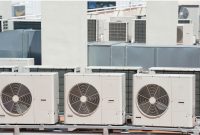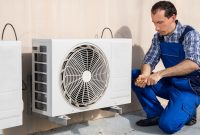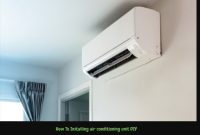How to calculation of air conditioning ? calculate the load, power, gain and prices. You must calculate before installing the air condition, correctly.
What power for your air conditioning? Getting it wrong is expensive!
An air conditioner increases your electricity consumption related to a room by 15 to 25% depending on use such as:
If the air conditioner is undersized (insufficient power), it will overspeed and consume even more electricity, resulting in poor efficiency.
If the air conditioner is oversized, your electric bill will not suffer too much, but you will have paid for an installation or a device too expensive.
Calculation of air conditioning

How to calculate the power required?
Several parameters enter into the calculation of the power required for reversible air conditioning.
The surface area and the height of the rooms make it possible to determine the volumes to be heated or cooled.
However, this data alone is insufficient, under penalty of under sizing your installation.
The insulation of your home, the number of occupants, the location and materials of the openings, the equipment in blinds and ventilation, and even the lighting and electrical equipment present in the room have an impact on the calculation of the power to be expected.
Determine the power of your reversible air conditioning yourself:
Quick calculation method for the power of your air conditioning:
- To refresh the air, you need 100W per m² for a ceiling of 2.50m.
- To heat you need 80W per m².
- The base unit is the Watt (denoted by W)
- 1000 W = 1 kW (kilowatt)
- 1 BTU (British Thermal Unit) = 0.3 W
We can estimate the power required for an air conditioner without being too wrong. The cooling capacity of an air conditioner is calculated in BTU (British thermal unit), the unit of measure of the heat required to raise the temperature.
First, we define the volumes to be heated, this figure is then multiplied by 100 to convert it into BTUs. Then add 1000 BTUs per window.
Take the example of a living room of 40 m2 and 2.40 m high with 2 windows, i.e.:
- (40 x 2.40) = 96 m3 x 100 = 9,600 BTU + 2,000 BTU = 11,600 BTU.
- Power (in BTU): 9,000 BTU ==> Treatable area less than 25m²
- Power (in BTU): 12,000 BTU ==> Treatable area between 25m² and 35m²
- Power (in BTU): 18,000 BTU ==> Treatable area greater than 35m²

More precisely, we can give the following equivalences:
- 7,000 BTU = 7 to 15 m²
- 9,000 BTU = 15 to 25 m²
- 12,000 BTU = 25 to 35 m²
- 18,000 BTU = 35 to 50 m²
- 24,000 BTU = 50 to 70 m²
- 30,000 BTU = 70 to 80 m²

These data are indicative, for a room with a ceiling of 2m40, well insulated, with a reasonable number of glazed openings.
The efficiency of air conditioning also depends on the nature of the walls.
For example, we will not choose the same air conditioner for a room of 20m² and a veranda of 20m², facing south.
Furthermore, when the air conditioning device allows reversibility and therefore to heat the room, it is important to properly assess its power in relation to the volume to be treated .
In winter, insufficient heating power will be more annoying than undersized air conditioners in summer.
The INVERTER models allow further hot power for winter, particularly when the outside temperature falls below 0 °.
Entrust the diagnosis to a professional:
Due to the complexity of air conditioning systems , it is best to hire a professional.
This will take into account all the parameters mentioned above .
The thermal assessment carried out by a professional is free, it allows you to calculate the power required and to offer you a tailor-made installation estimate.
Several quotes will allow you to compare and establish the reliability of your installer.
Refuse simplistic calculations and ask for explanations on the chosen method.
A calculation which would not take into account all the parameters would necessarily be wrong.
To avoid unnecessary expenses, it is best to accurately determine the power of your installation. Choosing the best professional will ensure you the best choice with, in the end, an installation sized to your situation and ideal comfort at the best cost .
Thermal assessment: to be done free of charge by a Pro:

For your air conditioning project, you will need to do a heat balance by a pro. This assessment is free, it is part of the overall installation service.
Indeed because it depends on very many factors:
- Area
- Ceiling height
- Number and surface of windows
- Window material: wood, aluminum, pvc
- Type of soil and insulation, pavilion, apartment floor.
- South, north exposure
- Geographical location
- Presence of electrical appliances, computers, servers.
The quality of the heat balance performed by a refrigeration engineer is a good way to test his level of competence, beware of too simple calculations, they are misleading.


